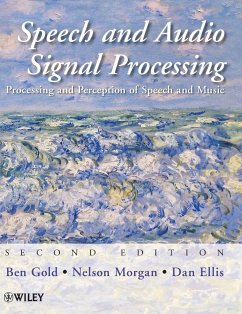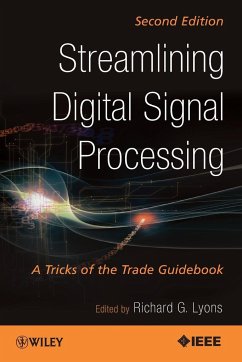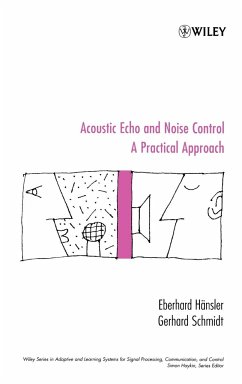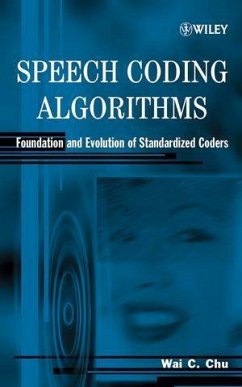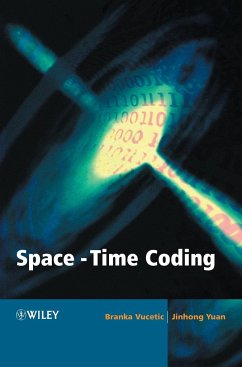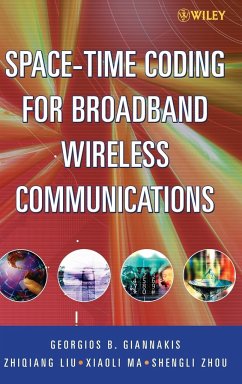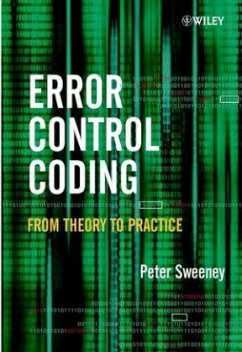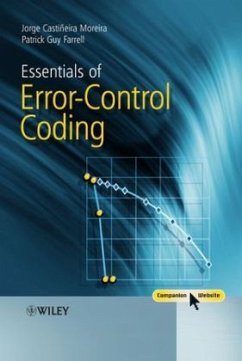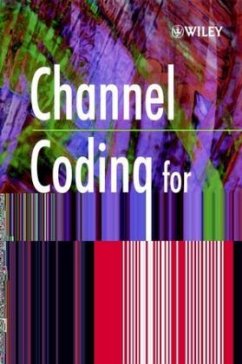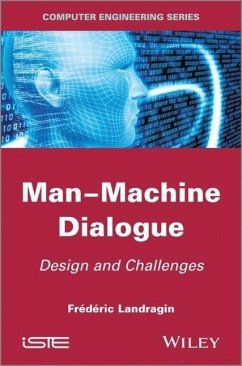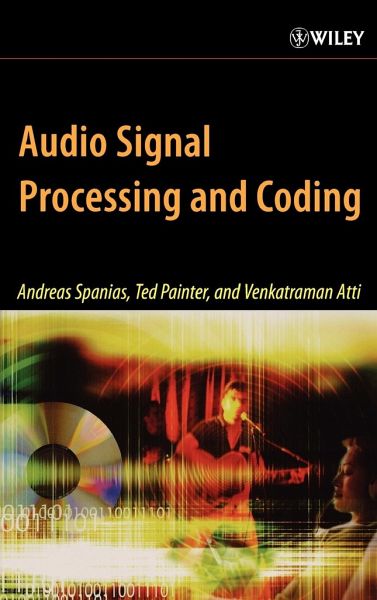
Audio Signal Processing and Coding

PAYBACK Punkte
74 °P sammeln!
This book provides an in-depth treatment of algorithms and standards for perceptual coding of high-fidelity audio. This is a self-contained reference in the sense that it surveys and addresses all aspects of the field, including signal processing and perceptual (psychoacoustic) fundamentals, details on relevant research and signal models, details on standardization and applications, and details on performance measures and perceptual measurement systems. It includes a comprehensive bibliography containing over 600 references. Additionally included are computer exercises and MATLAB-based projects for use in EE multimedia, computer science, and DSP courses.
Master algorithms and standards for transparent coding of high-fidelity audio
Here is an in-depth treatment of algorithms and standards for transparent coding of high-fidelity audio. Readers learn how algorithms for high-quality digital audio deliver transparent signal reproduction with a minimum number of bits. The unique features of the book include detailed coverage of topics such as filter banks, transform coding, sinusoidal analysis, linear prediction, hybrid algorithms, perceptual evaluation methods, scalable algorithms, Internet applications, MP3 and MP4 stereo systems, and current international and commercial audio standards.
Following a general introduction, the authors present fundamental signal processing concepts relevant to audio coding and then introduce waveform and entropy quantization schemes. Next are thorough treatments of the following topics:
_ Linear prediction, ADPCM, and CELP algorithms for narrowband and wideband coding
_ Cellular telephony vocoders versus CD-quality audio coders
_ Perceptual modules including the ISO/IEC 11172-3 (MPEG-1) psychoacoustic analysis model
_ Detailed descriptions of the MPEG-1 Layer III (MP3) and the AAC (MP4) algorithms
_ Descriptions of the algorithms behind successful products such as the Apple iPod
_ Filter bank design and algorithms and the Modified Discrete Cosine Transform (MDCT)
_ Established and emerging standards for transparent coding of CD-quality stereo audio signals
_ Standardization activities in high-fidelity audio coding, including DVD-Audio, Super Audio CD (SACD), Dolby AC3, Digital, Digital Theater Systems (DTS), and Sony SDDS surround sound
_ Lossless audio coding and digital audio watermarking techniques, including SHORTEN, DVD-algorithm, MUSICompress, AudioPaK, C-LPAC, LTAC, and IntMDCT lossless coding schemes
_ Surround sound compression algorithms for cinema and super audio CD applications
_ Digital audio watermarking, content protection, and copyright issues
_ Complexity, delay, error control, and subjective quality in perceptual audio coding
Computer exercises and MATLAB(r) hands-on projects complement the algorithm theory and reinforce concept learning. A comprehensive bibliography with more than 600 references to additional sources of information to explore individual topics in greater depth.
This textbook includes all the right elements and topics for a senior and/or graduate-level course in speech/audio processing and multimedia. Moreover, it is highly recommended for practitioners, scientists, and audio engineers who want to master coding algorithms for high-fidelity audio.
Here is an in-depth treatment of algorithms and standards for transparent coding of high-fidelity audio. Readers learn how algorithms for high-quality digital audio deliver transparent signal reproduction with a minimum number of bits. The unique features of the book include detailed coverage of topics such as filter banks, transform coding, sinusoidal analysis, linear prediction, hybrid algorithms, perceptual evaluation methods, scalable algorithms, Internet applications, MP3 and MP4 stereo systems, and current international and commercial audio standards.
Following a general introduction, the authors present fundamental signal processing concepts relevant to audio coding and then introduce waveform and entropy quantization schemes. Next are thorough treatments of the following topics:
_ Linear prediction, ADPCM, and CELP algorithms for narrowband and wideband coding
_ Cellular telephony vocoders versus CD-quality audio coders
_ Perceptual modules including the ISO/IEC 11172-3 (MPEG-1) psychoacoustic analysis model
_ Detailed descriptions of the MPEG-1 Layer III (MP3) and the AAC (MP4) algorithms
_ Descriptions of the algorithms behind successful products such as the Apple iPod
_ Filter bank design and algorithms and the Modified Discrete Cosine Transform (MDCT)
_ Established and emerging standards for transparent coding of CD-quality stereo audio signals
_ Standardization activities in high-fidelity audio coding, including DVD-Audio, Super Audio CD (SACD), Dolby AC3, Digital, Digital Theater Systems (DTS), and Sony SDDS surround sound
_ Lossless audio coding and digital audio watermarking techniques, including SHORTEN, DVD-algorithm, MUSICompress, AudioPaK, C-LPAC, LTAC, and IntMDCT lossless coding schemes
_ Surround sound compression algorithms for cinema and super audio CD applications
_ Digital audio watermarking, content protection, and copyright issues
_ Complexity, delay, error control, and subjective quality in perceptual audio coding
Computer exercises and MATLAB(r) hands-on projects complement the algorithm theory and reinforce concept learning. A comprehensive bibliography with more than 600 references to additional sources of information to explore individual topics in greater depth.
This textbook includes all the right elements and topics for a senior and/or graduate-level course in speech/audio processing and multimedia. Moreover, it is highly recommended for practitioners, scientists, and audio engineers who want to master coding algorithms for high-fidelity audio.





